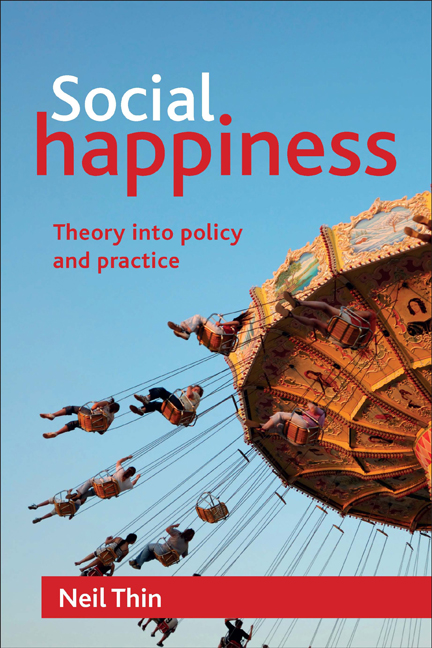ten - The shape of good hope: cultivating reasonable aspirations
Published online by Cambridge University Press: 01 September 2022
Summary
Traditional stories like the Pandora's box myth, Robert Bruce and the spider, and The Little Engine that Could remind us that hope has always been seen as a source of private strength. Much less attention has been given to social, collective hope – to the ways in which our aspirations are moulded and sustained through dyadic relationships, networks, political processes, and collective activities (Marmarosh et al, 2005). The popularity of the term ‘Hope’ in the titles of voluntary organisations and projects worldwide suggests that people recognise this as a key aspect of development. Box 10.1 explores the moral hazards in deliberate manipulation of aspirations at national level by looking at the super-rich Thai King's efforts to persuade his population to be happy with a ‘sufficiency economy’.
Box 10.1: Aspiration management in Thailand: the ‘Sufficiency Economy’ and the ‘Happiness Society’
The closest parallel to the Bhutanese ‘Gross National Happiness’ concept is the Thai government's ‘Sufficiency Economy’ concept (and associated ‘Green and Happiness Society’ concept). As in Bhutan, this is strongly identified with a narrative of spiritually inspired thinking from a sacred Buddhist monarch (www.sufficiencyeconomy.org/old/en). King Bhumibok Adulej, recipient of the UN Human Development Lifetime Achievement Award in 2006, is also one of the world's richest royals, yet at the same time a fervent advocate of the financial downshifting of his people.
Having given many speeches on the need for modesty in development, in his 1997 birthday speech, soon after the financial meltdown, the king reminded citizens of his wish that the country should take a ‘careful step backwards’ towards sustainability via low-risk agricultural diversification and nurturing of community harmony. As in both the GNH rhetoric and Fritz Schumacher's ‘Buddhist Economics’ concept (1966/1973), the vaguely humanist concept of ‘human-centred’ development is combined with spiritualism and the metaphor of the ‘middle path’ in Thailand, focusing on ‘well-being rather than wealth’ (UNDP, 2007, pp v, xv).
The Thai king is careful to ask that this flexible ‘middle path’ be generous enough to accommodate his own affluent life-style. Comfortably off with his Crown assets worth some $30 billion, he argues that: ‘Sufficiency means to lead a reasonably comfortable life, without excess, or overindulgence in luxury, but enough.
- Type
- Chapter
- Information
- Social HappinessTheory into Policy and Practice, pp. 135 - 148Publisher: Bristol University PressPrint publication year: 2012



